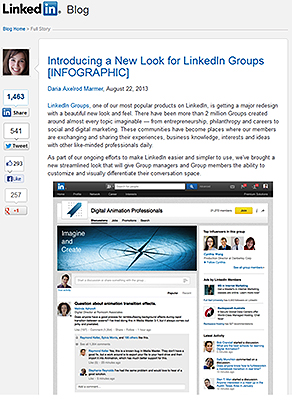 International Literacy Day was Sept. 8, but we’ve decided to celebrate and promote it all month long with a series of blog posts based on marketing and business books we’ve recently read. Today’s featured title is John C. Maxwell’s “Leadership Gold.”
International Literacy Day was Sept. 8, but we’ve decided to celebrate and promote it all month long with a series of blog posts based on marketing and business books we’ve recently read. Today’s featured title is John C. Maxwell’s “Leadership Gold.”
Has rational ignorance impacted your organization’s social media activity yet? Rational ignorance is the decision not to become more informed about something because the perceived cost of the additional intelligence — in terms of both effort and expense — is more than the expected return on the knowledge gained. It’s not a condition you’re excited to encounter if you’re trying to create a lifelong learning environment.
More than likely, your organization started its social media journey with great excitement and a willingness to invest and learn. Now that the honeymoon is over, most of your staff missed the changes on LinkedIn Groups, and it’s been months since they tweeted.
The concept of rational ignorance, while popping up on a daily basis for most of us, is particularly consequential to a social media strategy because the social media ecosystem is still evolving at a rapid pace. We currently live in an age when the most important marketing skill-set is the ability to keep our social marketing knowledge relevant and up-to-date. Effective marketing leaders realize they – and their teams – need to be lifelong learners ready to learn and grow every day.
So, with the help of John C. Maxwell’s book, “Leadership Gold,” here are three tips that will help you build a social media lifelong learning environment:
1. Invest in yourself first.
Spend time building a stronger personal brand vision on social media. Then demonstrate how your personal brands can be joined to create a strong shared vision for the company. For example, a strong personal Klout score is valuable for you as an individual and is a tremendous source of influence for your company brand. Genuine caring about a shared vision is rooted in personal visions. So encourage your team to invest in their personal social media visions.
2. Keep learning and then lead from the front.
Training is one of the most important ways for a marketing team to keep their social media skills up to date. Declare your training support. Let your team know how vital training is by personally conducting practice sessions on social media applications.
3. Enrollment, not selling.
You’re a salesperson at heart. That means you have a tendency to try to convince your audience of the benefits of a vision or program. As you focus on personal brand vision and social media training with your team you need to make sure you turn down your need to persuade in order to let them have time to develop their own sense of benefits related to lifelong learning.
This strategy calls for a great deal of personal involvement from an organization’s marketing leadership. But in the long run, the only sustainable competitive advantage an organization has is its ability to learn faster than its competition. It’s time to hit the books!
Tags: Twitter, Klout, social media, literacy, leadership, learning, training




